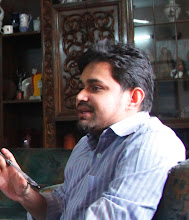The prices have soared for almost all food items persistently, sometimes artificially increased through syndicates and sometimes putting up with the international market. An effective strategy is what people look forward from the newly elected government – a strategy that would discuss solutions more than meetings, roundtables and bluffs. Mushfique Wadud asks policymakers and eminent economists for their prescriptions to control the price hike
Abul Maal Abdul Muhith 
Former finance minister
At present prices of food items in the international market are stable. I am confident I can control the food prices if I take the helm of finance ministry. How?
We have a six-point programme in our manifesto that will control the prices of food items. Many importers continue to sell goods at a higher price reasoning their sale from earlier stocks. This has to be checked thoroughly.
Read more at
http://www.newagebd.com/2009/jan/02/jan02/xtra_inner3.html










